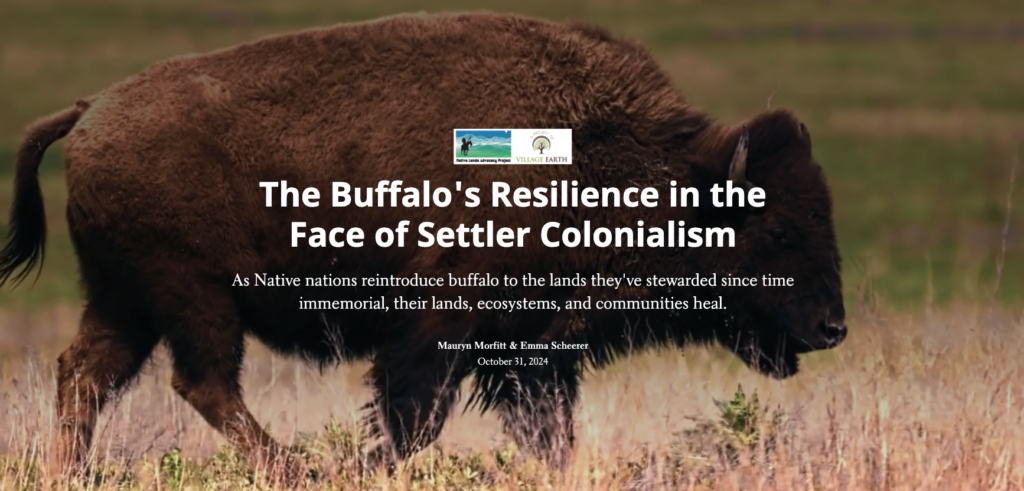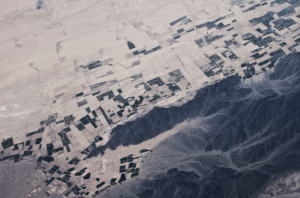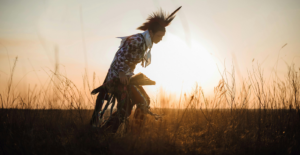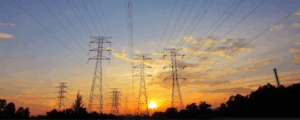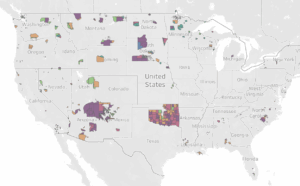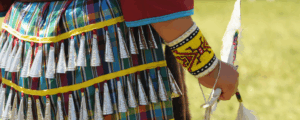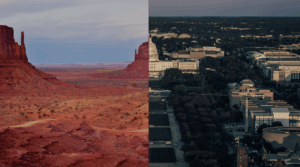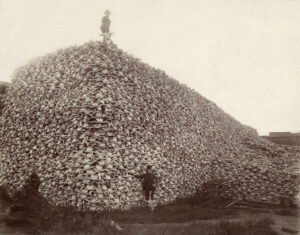Prior to the United States’ extinction efforts, North American prairies were described as “being thick with [buffalo]. In all directions, as far as the eye could reach, there was a sea of these moving animals” (Goodnight, 1931). It can be difficult for the modern American mind to imagine these thunderous herds of bison roaming the plains in harmony with their human and non-human relatives. How did we get from there to where we are now? How did this sea of bison evaporate into the comparably minuscule population we see today? And what actions are Native nations taking to bring the buffalo home? Our new storymap addresses these questions.
The Buffalo's Resilience in the Face of Settler Colonialism
The United States recognized that “wherever buffalo existed, there would be Native people, and they would continue to fight for land wherever the buffalo roamed” (Oluo, 2021). The survival of the buffalo today speaks to the resilience of the species and of their Native caretakers.
[Buffalo] signify to me forbearance, fortitude, and the ability to persevere amongst the worst things in life—and to be able to thrive.
Lucille Contreras, Texas Tribal Buffalo Project CEO & Founder, enrolled member of the Lipan Apache Band of Texas Tweet
NLAP is also happy to highlight a few of the many buffalo reintroduction projects across Indian Country: Tanka Fund, the InterTribal Buffalo Council, and Texas Tribal Buffalo Project. We’re thankful to have spoken to Lucille Contreras, CEO and Founder of TTBP, whose insights helped shape the development of this storymap.
The impact of reintroduction projects like these is documented by data sources such as the USDA Census of Agriculture for American Indian Reservations, which records an incredible 2216% increase in bison on Native lands with Native caretakers between 2012 and 2022. But numbers only capture one part of the major cultural, spiritual, ecological, nutritional, and economic impacts that bringing the buffalo home has on their lands and communities. As the InterTribal Buffalo Council says, “reintroduction of the buffalo to tribal lands will help heal the spirit of both the Indian people and the buffalo.”
Read the Buffalo Storymap:
Written by Emma Scheerer & Mauryn Morfitt
Goodnight, C. (1931, March 19). Extermination of the Wild Buffaloes. The Indian Journal, pp. 12. https://www.newspapers.com/article/the-indian-journal-extermination-of-the/155172400/
InterTribal Buffalo Council. (2023). History and Mission. https://itbcbuffalonation.org/
Olou, I. (2021, November 12). “What the True Story of Buffalo Bill Reveals About the Myth of the Wild West”. In Mediocre: The Dangerous Legacy of White Male America. Seal Press. 2021. https://time.com/6114737/buffalo-bill-cody-wild-west-myth/

